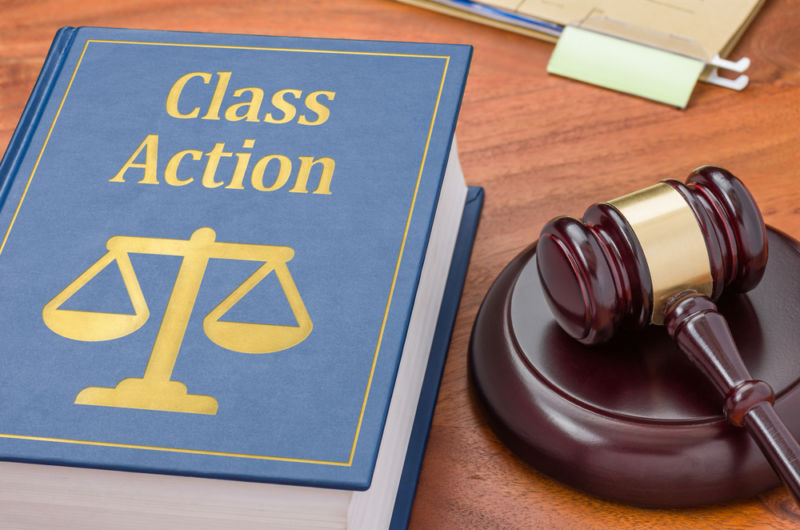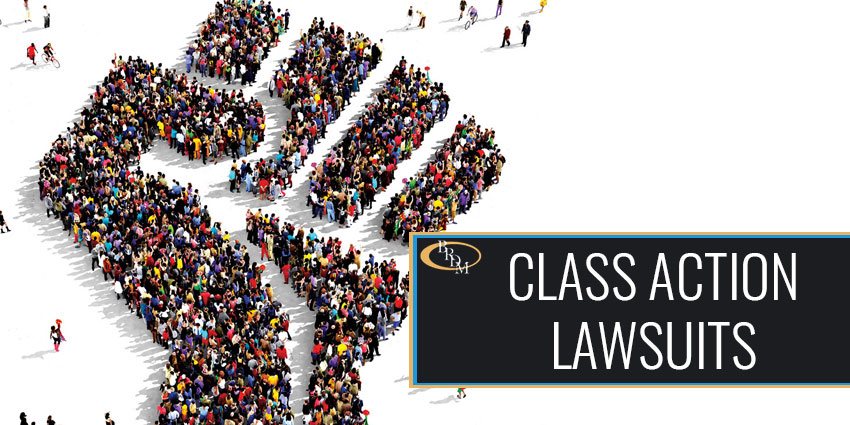Cumulative Justice: The Power and Refine of Class Action Lawsuit Claims
Wiki Article
Secret Aspects to Take Into Consideration in Class Action Suits: Insights for Legal Representatives
Course action claims can be challenging and complex for lawyers to navigate. Understanding these elements and their ramifications is important for attorneys aiming to effectively represent their clients in class action suits.Class Certification Requirements
To wage a class activity claim, attorneys should navigate with a collection of rigorous class certification needs. Class qualification is a crucial phase in the litigation procedure that identifies whether a team of plaintiffs can be licensed as a class and continue with their claims collectively. These requirements serve to guarantee that course actions are appropriate and effective mechanisms for dealing with disagreements involving countless plaintiffs.Among the primary demands for course accreditation is numerosity. This standard demands that the course be so numerous that joinder of all members is impracticable. While there is no set numerical limit, courts usually think about a course with greater than 40 participants as completely countless. Furthermore, commonality is an additional important consider class accreditation. It needs that there are inquiries of law or truth usual to the course, which must predominate over private concerns.
Adequacy of depiction makes certain that the reps will relatively and sufficiently safeguard the rate of interests of the class participants. A class action have to likewise satisfy the need of prevalence, indicating that a class activity is a remarkable method for adjudicating the disagreement contrasted to other readily available approaches.
Navigating through these course accreditation requirements can be challenging and complicated for lawyers. Understanding and conference these demands are essential to efficiently seek a class action claim on behalf of a team of plaintiffs.

Commonness of Cases
The next critical factor to take into consideration in the course accreditation process is the commonality of claims amongst the plaintiffs. Commonality describes whether the class participants share comparable legal issues and inquiries of reality that can be solved collectively. In other words, it is necessary to identify if there prevail concerns of law or reality that are main to the litigation which predominate over any kind of private issues.To develop commonality, the complainants need to demonstrate that there are lawful or factual concerns that prevail to the whole class. This can be attained by identifying a typical course of conduct or a typical lawful theory that underlies the cases (Class action lawsuit). The presence of typical questions is necessary because it advertises judicial performance and economic climate by permitting a single choice to resolve the problems for the whole class
Nevertheless, it is necessary to note that the commonness need does not necessitate that all the private cases equal. If there are still common questions that bind the class with each other., distinctions in problems or specific circumstances do not necessarily defeat commonness.

Problems Calculations
One vital facet to consider when computing problems in class activity legal actions is the precise assessment of monetary losses sustained by the class participants. In order to establish the appropriate amount of payment, it is essential to evaluate the extent of harm suffered by each individual within the class. This can be a complicated job, as it calls for a comprehensive analysis of various elements, such as the nature and duration of the damage, the monetary influence on the influenced people, and any kind of various other relevant considerations.When evaluating monetary losses, it is essential to think about both the indirect and direct damages suffered by the class members. Straight problems describe the actual out-of-pocket costs incurred as a result go to my site of the defendant's actions. These might consist of clinical costs, residential or commercial property damage costs, or any various other concrete monetary losses. On the other hand, indirect damages encompass the intangible losses that are more difficult to quantify, such as emotional distress, loss of online reputation, or lessened lifestyle.
To calculate problems precisely, lawyers must collect thorough proof, including financial documents, expert point of views, and statements from the class participants. They may also require to engage economic and economic professionals who can provide understandings into the long-lasting financial effects of the damage endured.
Settlement Arrangements
During negotiation arrangements, lawyers have to view website take part in calculated and mindful discussions to reach a mutually reasonable resolution for all parties associated with the class activity legal action (Class action lawsuit). Settlement settlements are a critical see this phase in the litigation procedure, where the events try to reach a compromise without going to test. These settlements call for lawyers to employ their negotiation skills, legal expertise, and understanding of the case's weaknesses and staminasOne crucial variable to consider during settlement negotiations is the potential risks and costs associated with proceeding to trial. Attorneys should very carefully examine the probability of success at test and evaluate it against the prospective benefits of a settlement. They must likewise think about the possible time and sources that would certainly be needed to undergo a trial, in addition to the prospective adverse attention that can arise from a public test.
One more crucial aspect is the rate of interests and worries of the class members. Attorneys require to recognize what the course members hope to achieve through the lawsuit and how a negotiation can resolve their grievances. By thinking about the class members' perspectives and seeking advice from them throughout the arrangement procedure, attorneys can better advocate for their passions and make certain that any kind of settlement reached is fair and satisfying.
Furthermore, lawyers have to be prepared to bargain with the opposing celebration and their legal reps. This needs a deep understanding of the strengths and weak points of both sides' disagreements and a desire to jeopardize. Knowledgeable mediators can leverage this expertise to find commonalities and craft creative remedies that meet the demands of all parties included.
Effective Client Depiction
To efficiently represent their customers in class action legal actions, attorneys have to possess a detailed understanding of the case and carefully advocate for their customers' interests. Efficient customer representation needs legal representatives to establish open lines of communication and preserve a solid attorney-client relationship throughout the entire lawsuits procedure.
Firstly, attorneys need to extensively evaluate the truths, lawful concerns, and prospective threats related to the situation. This includes carrying out a thorough investigation, evaluating appropriate papers, and consulting with experts if essential. By gaining a deep understanding of the case, lawyers can develop a tactical technique customized to their customers' purposes and demands.
Furthermore, lawyers must actively advocate for their clients' interests during all stages of the lawsuit. This involves drafting convincing legal disagreements, carrying out comprehensive research, and presenting compelling evidence to support their clients' cases. Legal representatives need to additionally remain notified regarding recent developments in class action law and utilize this expertise to reinforce their customers' settings.
In addition to legal campaigning for, reliable customer representation entails giving routine updates, responding to questions, and resolving any type of issues that clients might have. Legal representatives need to be positive in keeping their customers notified about the progression of the situation and any substantial advancements that might impact the outcome.
Inevitably, efficient customer representation requires attorneys to be persistent, receptive, and devoted to protecting their customers' passions and civil liberties. By adopting a client-centered strategy, lawyers can take full advantage of the opportunities of accomplishing a desirable result in course action claims.
Conclusion
In final thought, legal representatives involved in class action claims need to consider essential variables such as course certification demands, the commonness of cases, problems estimations, settlement negotiations, and effective client representation. By very carefully resolving these variables, lawyers can enhance their chances of success in class activity claims and make certain that the passions of their customers are shielded.
Recognizing these factors and their implications is essential for attorneys aiming to efficiently represent their clients in class action claims.To continue with a course action claim, attorneys need to browse with a series of strict class certification requirements. Course qualification is an essential stage in the litigation procedure that establishes whether a team of complainants can be licensed as a course and proceed with their claims collectively. A course activity should also please the demand of supremacy, implying that a class activity is a remarkable technique for adjudicating the disagreement contrasted to other readily available approaches.
One important aspect to consider when computing damages in class activity claims is the accurate analysis of monetary losses incurred by the course members.
Report this wiki page